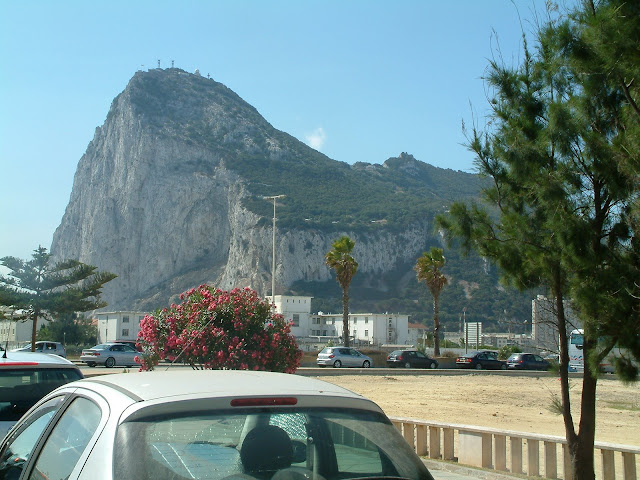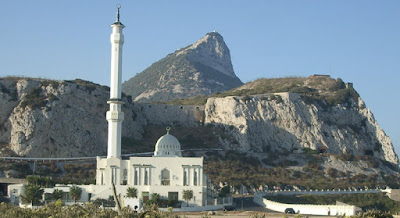I have taken a hiatus from this blog for nigh on three years, maybe slightly longer. Life sometimes gets in the way - work, the dullness of routine that serves to numb creativity, the grind of getting each day done that stifles so many of those who might want, wish, would and should write their stories and tell their tales. Myself included, clearly.
But I've not been away entirely.
Since my last blog post, I have published a non-fiction book, co-written with my eldest daughter, Ciara Wild. Myth Monster Murder explored the story of Jack the Ripper, how the gruesome Whitechapel murders were, and are, mythologised by the media, how at least five women became the victims of his blood-happy knife, and of the gore-addicted press, victims themselves, perhaps, of rampant commercialism. Why did the murders take place and could they happen again, we ask ourselves in the book. I won't tell you the answer. The book is readily available on Kindle or on paperback through Amazon, Blackwells, Waterstones, Foyles....so treat yourselves!
Myth Monster Murderer by Jackie Anderson and Ciara Wild
That feat wore me out a little, so my writing became more of a dabbling, an early morning pre-breakfast gathering of thoughts and toying with the keys of my laptop, or the occasional scribbling in a notebook of disparate ideas, sentences and phrases that appear irrationally and unannounced into my mind and that occasionally drift together into a coherent whole.
But during that rather barren period, something has emerged in Gibraltar that is worthy of dusting down this blog and reawakening it. And that thing - or phenomenon is more approrpriate a word - is Patuka Press and its literary journal, the third issue being entitled: Llanito.

My copy of Llanito from Patuka Press
Here's where you can get your copy of LLanito
I spoke on GBC Breakfast about this back in July. It was a brief interview too early in the morning for me to be fully coherent so apologies to listeners, but in it I spoke not just about my writing and my book and the story I wrote that was published in 'Llanito', but also about the journal.
I remember having conversations with fellow Gibraltarian Writers some years ago, shortly after a group of us worked on publishing an Anthology of Gibraltarian Poets (the first anthology of its kind), that centred around the vital importance of having a local outlet that would publish local writing - that is, writing that is not just produced locally, but by writers that have a strong connection with Gibraltar, who may be Gibraltarians living abroad, or people who had spent time in Gibraltar and had stories to tell.
Writers might well love their craft, they might well be brilliantly skilled storytellers, wordsmiths, playwrights, poets, but if they cannot reach out to readers through some form of publishing, then their words are lost to the rest of us. And that is a literary tragedy, especially in Gibraltar, where there are so many tales to be told and its writers are bursting to tell them.
More than that; we want to tell them in our language, in Llanito, in the words that shape who and what we are as a people, and as an individual person.
In the past few years, there have been an increasing number of initiatives that have started to provide recognition for Gibraltar's writers, and outlets for their work. Among many other features, Gibraltar now has a Literature Week which this year is going to form part of the Gibraltar Literary Festival; there is a local book shop at last, which stocks works by local writers and about Gibraltar; there is increasing recognition, academically and among Gibraltarians, that our language is a clear and valid language that is part of our cultural identity. Social media and interest from GBC through various programmes such as Between the Lines, has helped tremendously. Young writers are daring to write and publish and not worry about whether what they have written is 'literature' or not; they do not care about meeting some vague and undefined standard of what is literature and don't question whether they can stand up to comparison with Dickens, Byron, Orwell or Rowling. Who wants to be like all the others anyway? We are who we are and say what we say and from what I'm reading of Gibraltarian writers, some can proudly stand shoulder to shoulder with other writers from other countries, or spine to spine on the shelves of any bookshop or library anywhere.
The joy of seeing this growth in local writing is immeasurable, more so when seeing that so much is now written in Llanito. Despite the decriers and nay-sayers, and I am not going to waste any energy wading into that argument, we are finally openly exploring what it means to be 'us', to speak in our own language, to write our own stories. What Patuka Press has achieved with Llanito is to put a stamp of approval, a public accreditation if you like, on writing in llanito. And that goes a long way to saving our dwindling language. As Charles Durante put it in his essay 'Llanito: Grammar, Etymology and Identity' in LLanito:
"It would be a very sad day if Llanito were to disappear, as some have gleefully predicted. It would be like losing a limb, a form of spiritual emasculation."
I can't help but agree. It would be a tragedy with far-reaching effects; the loss would be far more visceral than the loss of a gathering of words.
So the impact of Patuka Press and its collections of stories, poems and essays should not be understated. To local readers it provides an affirmation of who and what we are culturally; we laugh and nod our heads in recognition of ourselves and our community, we marvel at the novel and the new that is being created day to day by talented Gibraltarians, we gasp at the variety of imaginative skill on show between the pages. That this third issue explores and celebrates Llanito, hablando de mi people en mi language, is testament to the surfacing of our love for Gibraltarian culture, our willingness to explore talk about what makes us us, the sunshine and the rain, the beautiful and the ugly, the whole gamut of Gibraltarianness, warts and all. The journal is both an achievement in itself, and I hope, it is also the soil in which our literary growth as a people will take root and find succour.
- Another publishing house. Patuka Press and Calpe Press and self-publishing may be wonderful things but we need the competitiveness of alteranative publishers to hone our skills and thrust our writing output into the realms of quality and not just quantity.
- Setting a high bar. Again, quality. It isn't just about work being published because it's been written or even because it's good. It's got to be good enough.
- A writing residency, where the writer in residence (perhaps selected from numerous applications to the National Book Council) works for 1 - 2 years as a writer, running workshops, producing work, organising readings, running writing groups, attending seminars, book and literary events in other countries, mentoring writers and so on.
And while all that is going on, get yourself a copy of Llanito. I picked one up from Amazon because I happened to be in UK when it came out, but Bookgem sells it. And then get the other two issues: Shit Jobs and Borders and Boundaries. You'll find one of my stories published in each of the three editions, and I'm not just proud that my submissions were selected for publication; I am privileged.
































